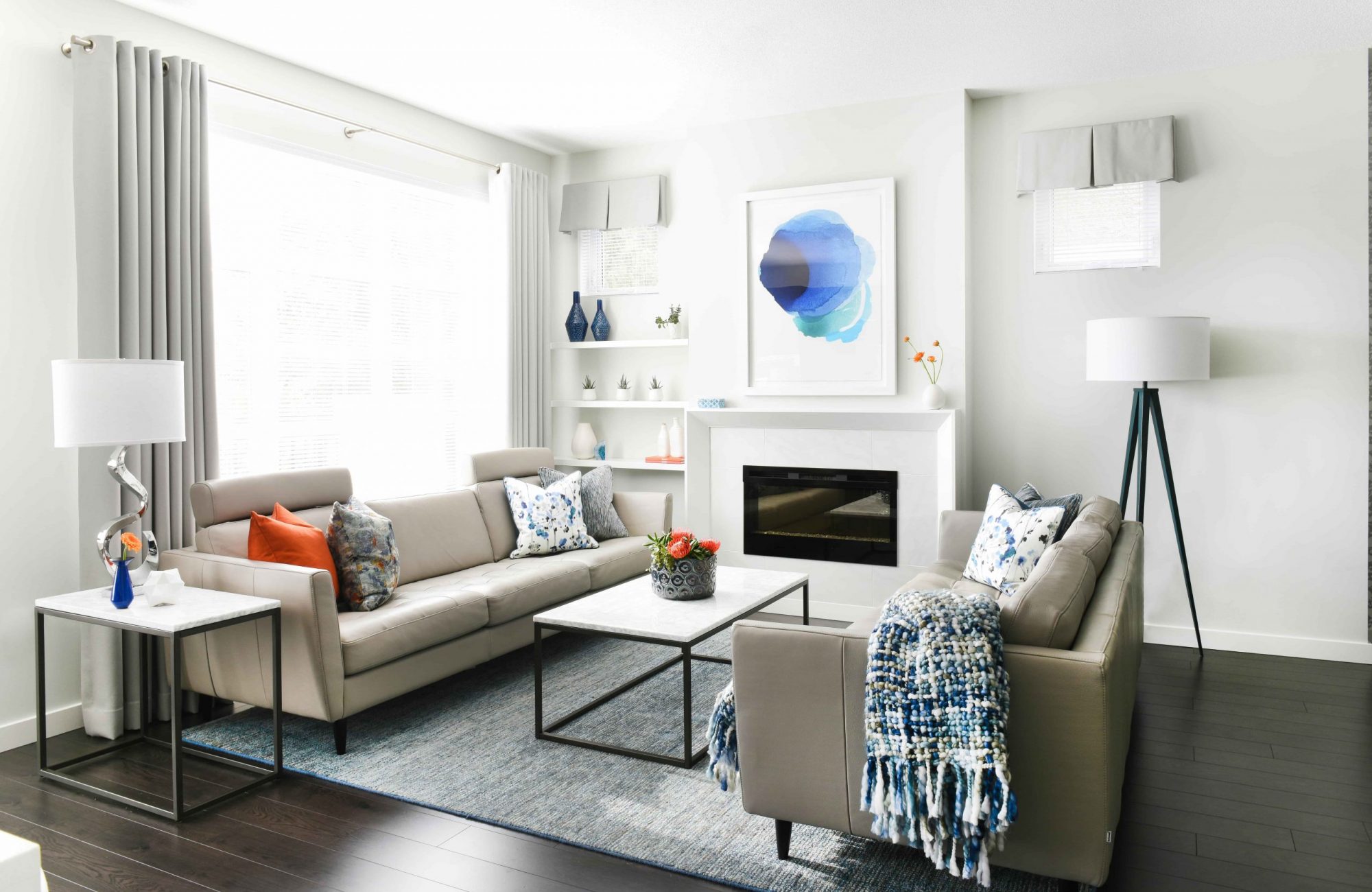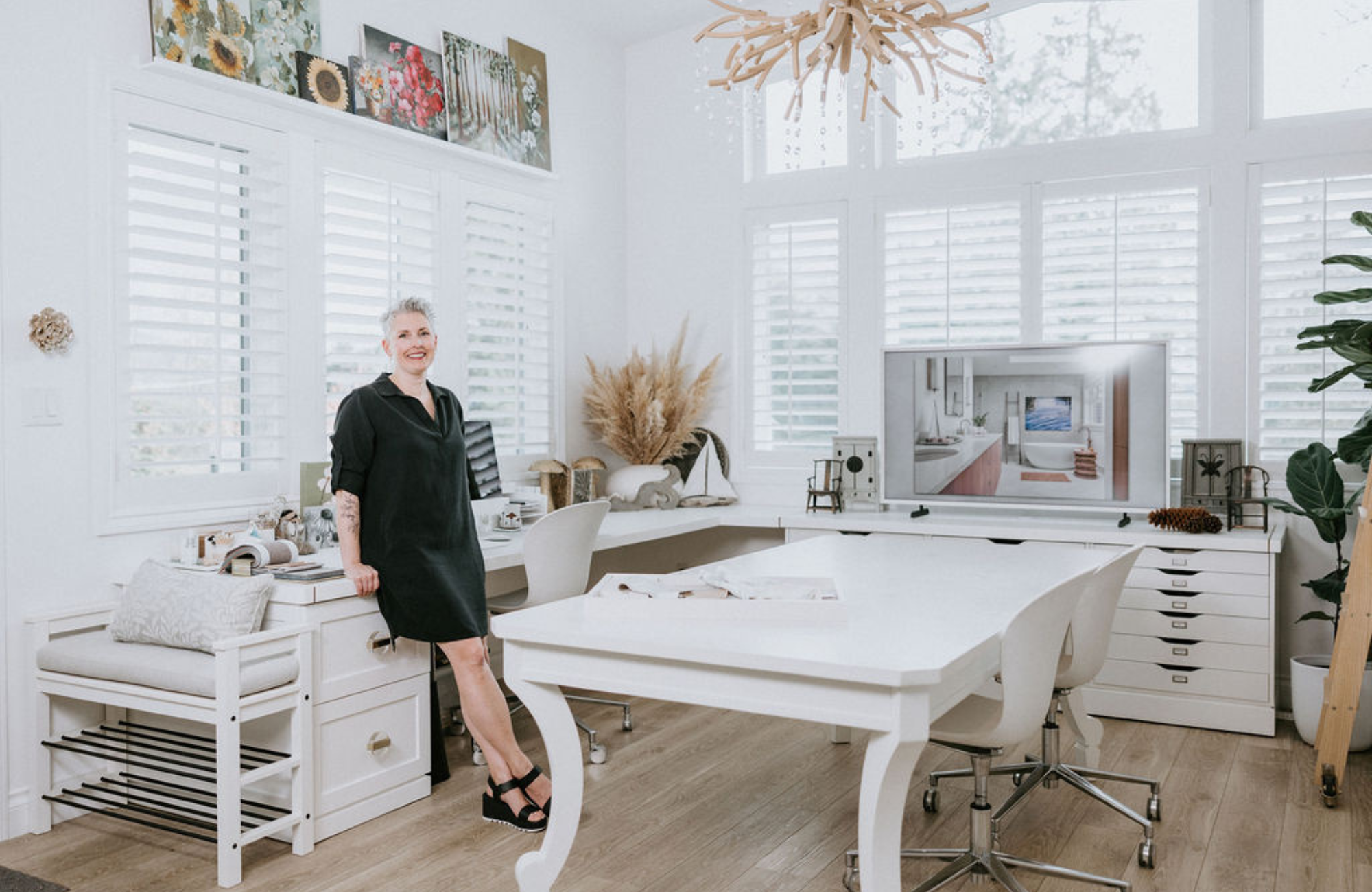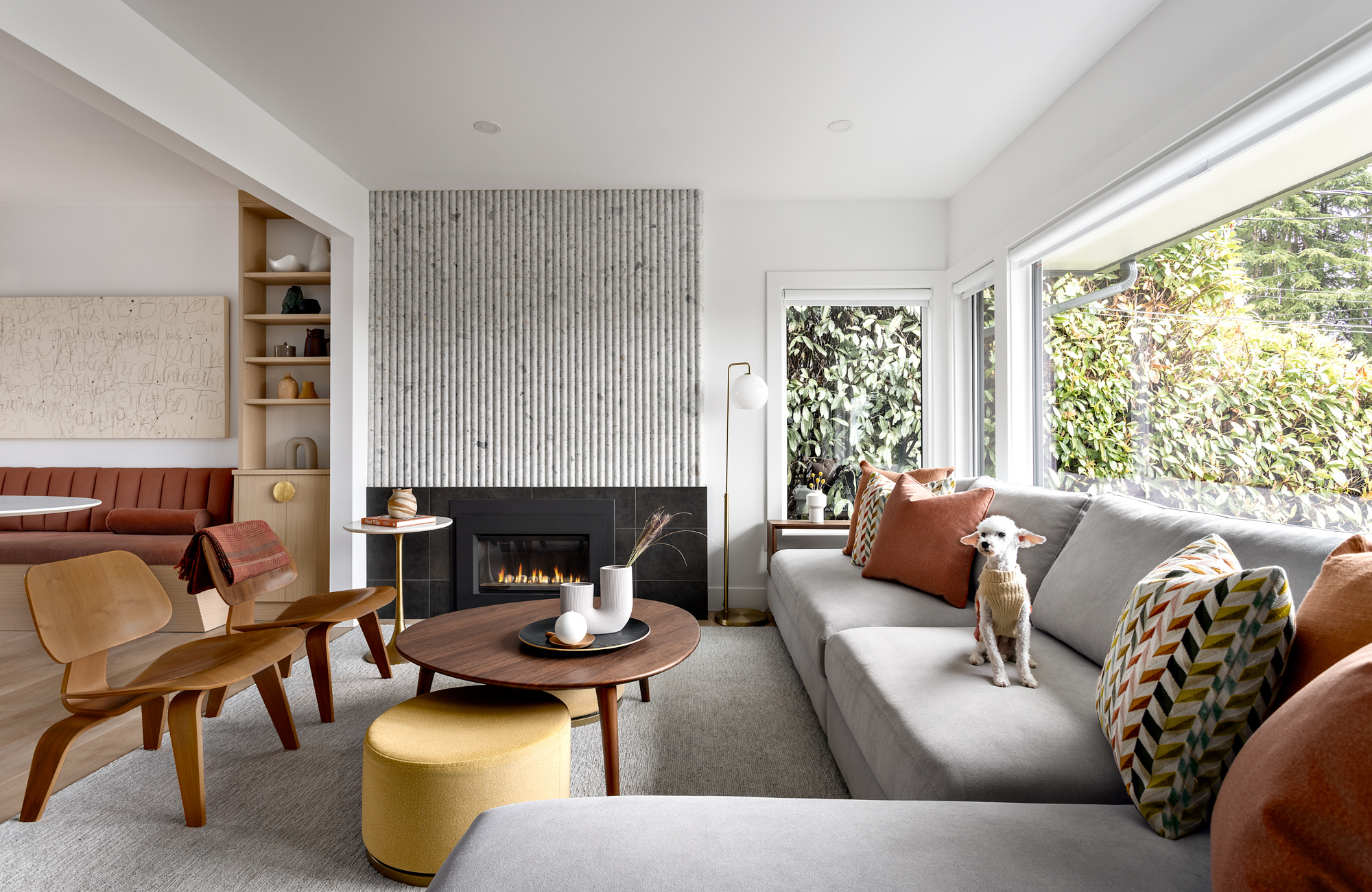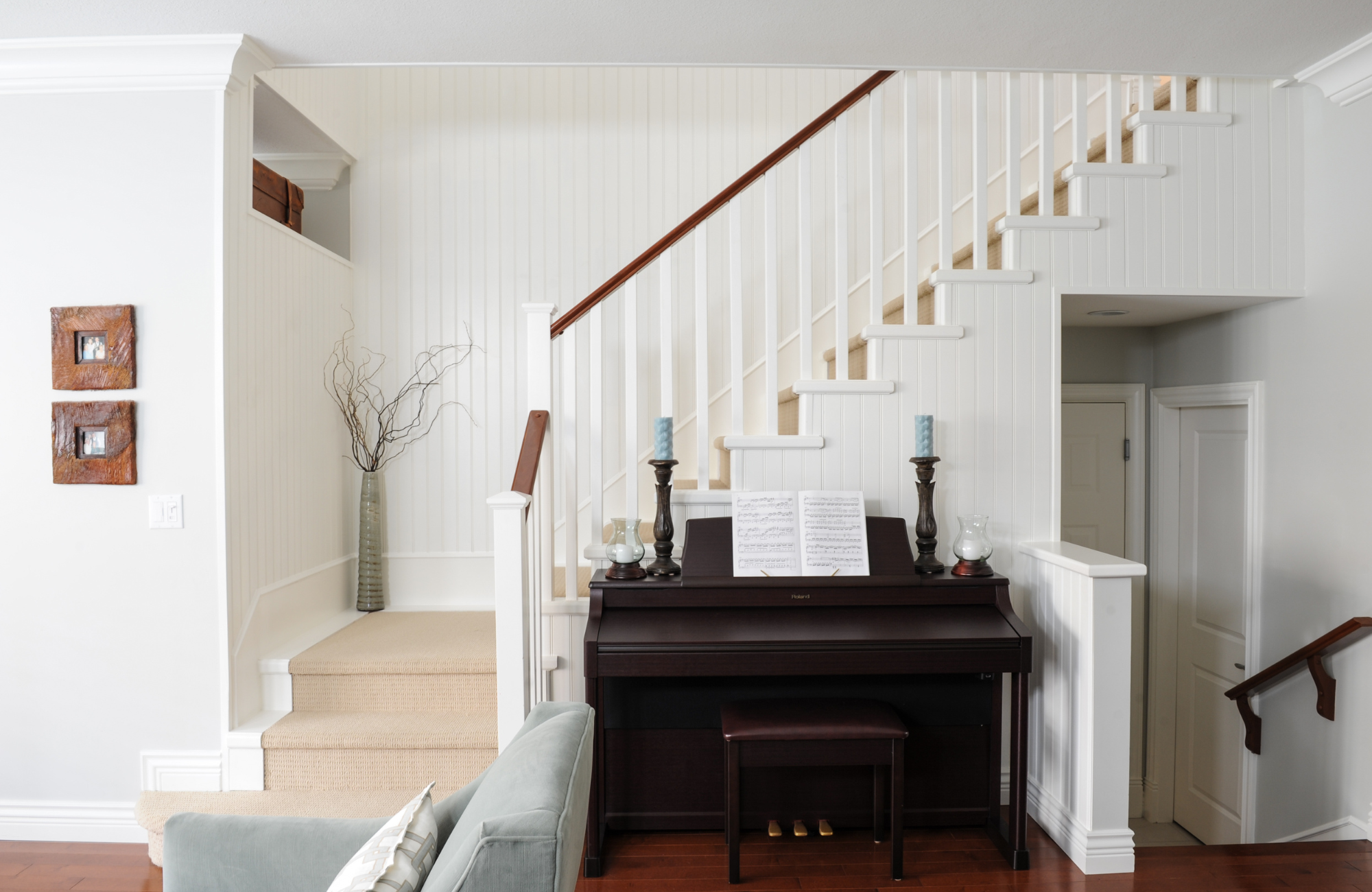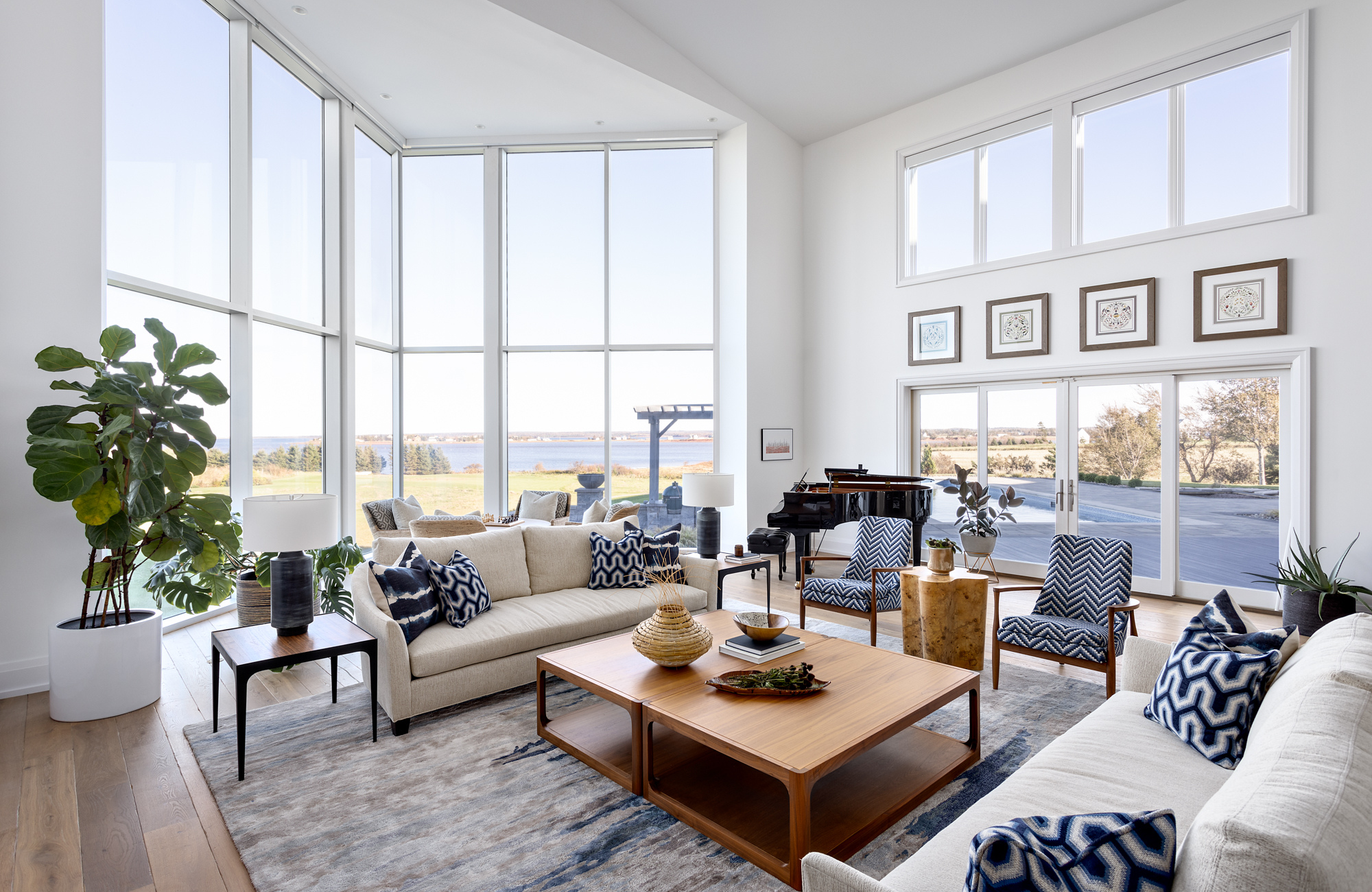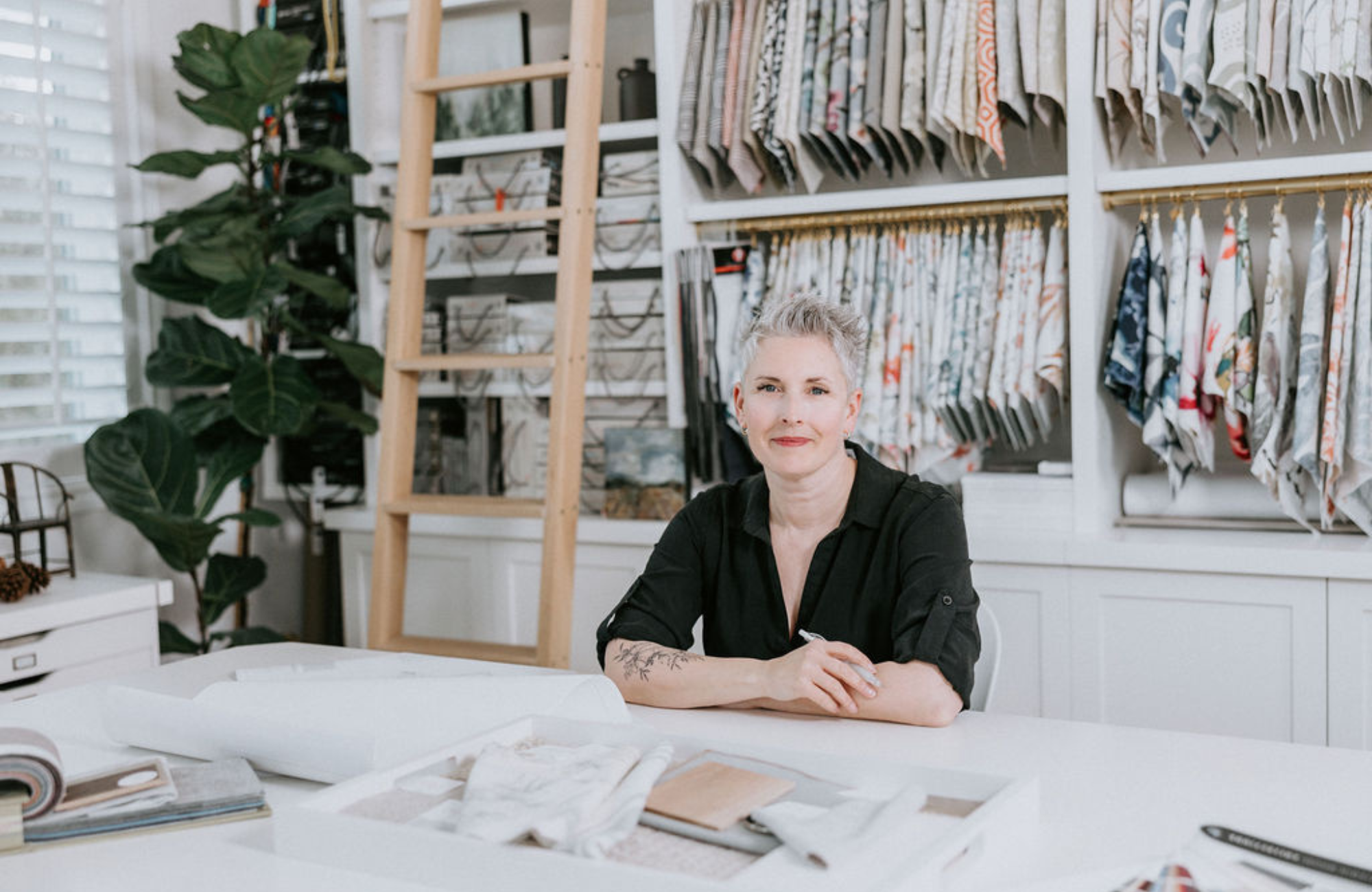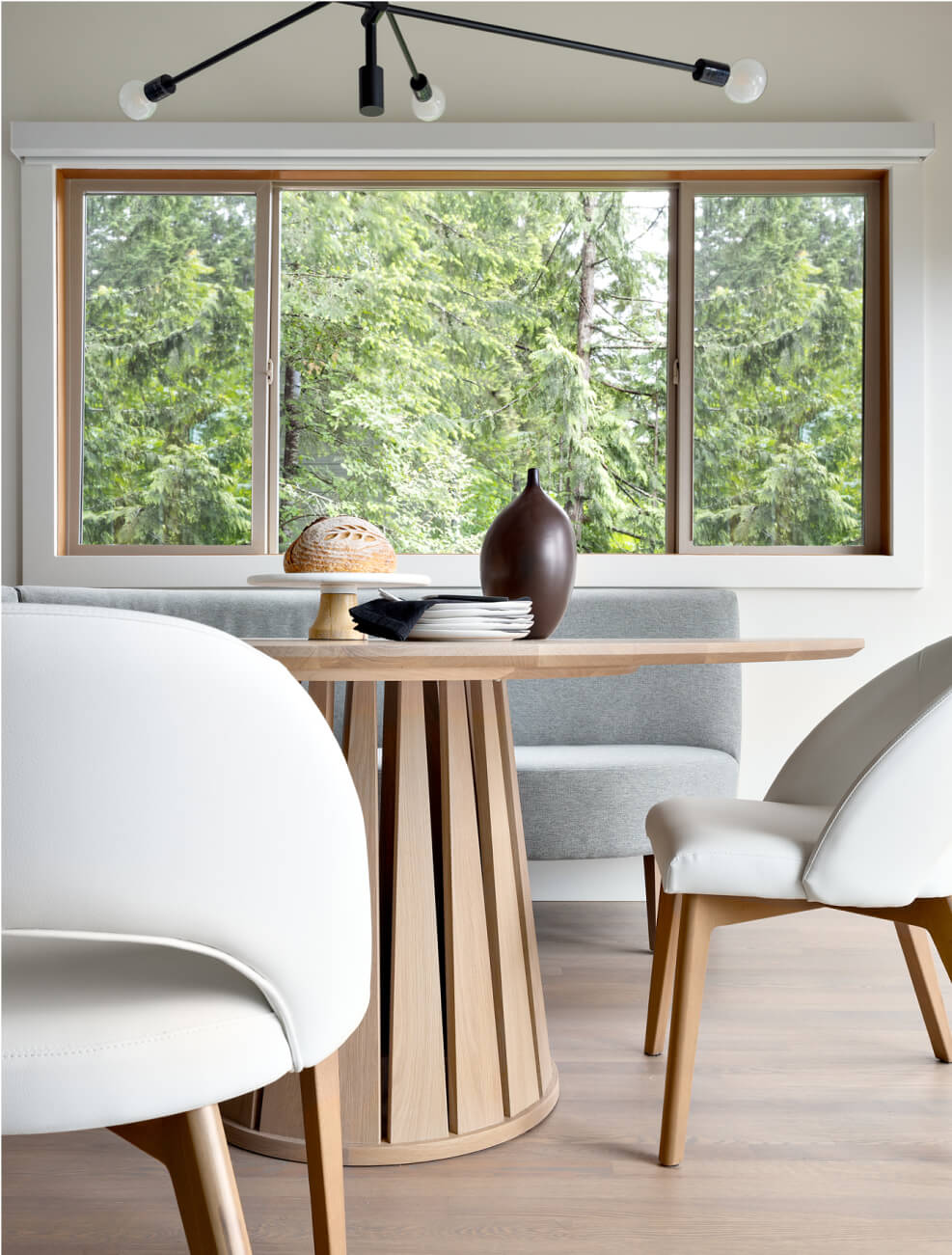How do you create a child-friendly home that doesn’t look or feel like a kindergarten? One that adults love to come home to, that keeps kids safe, and that survives and supports your everyday life? If you think this is a tall order, believe me, it can be done. You CAN have a nice looking home — even if kids and pets live there, too.
How do I know? Well, in addition to 20 years in clients’ homes across Canada and most recently in North Vancouver, I also have a daughter at home, as well as a mountain biking husband, a very active Labradoodle, and an assortment of other pets.
If there is anything I have learned over these two decades as a designer, it is that having kids and pets does not mean your home has to be substandard, but it also doesn’t mean that you have to walk around your home on eggshells either.
As a very practical designer, I believe that the secret to a coordinated and comfortable family home is a balance of strategic space planning, smart material selections, and an eye for safety. I refer to the feeling of peace that comes from a well planned home as Everyday Luxury.
Today, I’m sharing with you my best 8 tips for achieving everyday luxury in your own home… no matter who lives there.
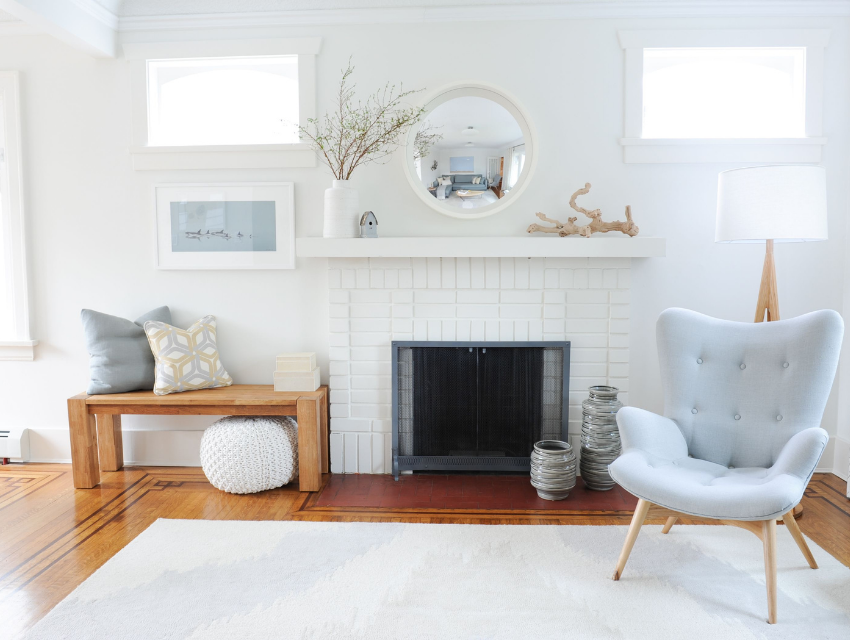
Need proof that your family home can be beautiful? This relaxing Scandinavian-inspired living room was designed specifically for a growing family of four.
Part 1. Keeping Your Child-Friendly Home Nice and Clean
Tip: Embrace a balanced approach
It is not my place to offer parenting advice, so I will simply tell you what I have seen in my 20 years of working with clients. The happiest homeowners strike a balance between selecting materials that will withstand kids and pets and giving their kids the opportunity to be surrounded by nice things.
This approach teaches kids to respect their surroundings, shows them they are trusted, and instills in them an appreciation of quality over the long-term. The best part? Kids get to be kids, and parents won’t have a panic attack when snack time happens on the sofa. Hello, peace of mind.
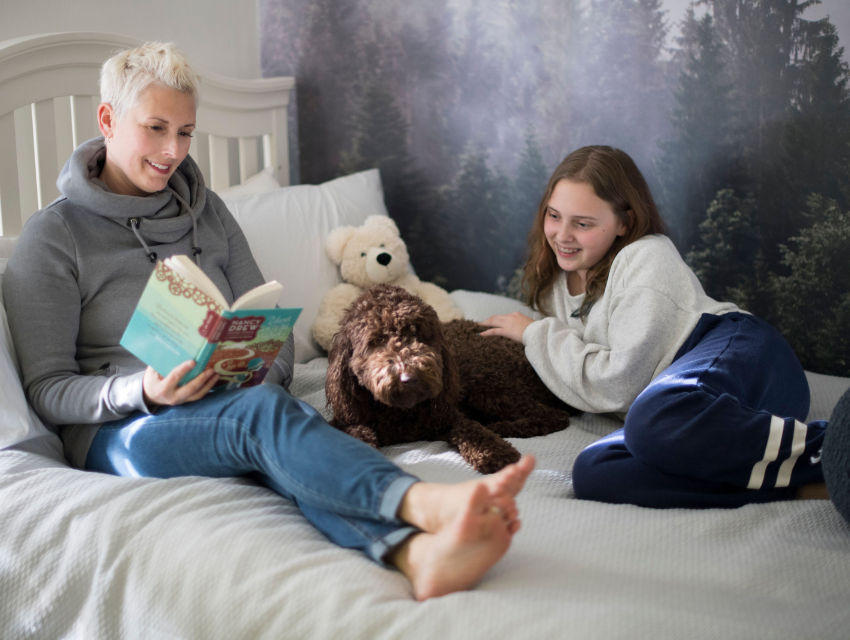
Kiwi the Labradoodle on the bed? There is a reason I opted for a non-shedding dog!
Tip: Choose high-quality, water-resistant flooring
Speaking of materials that put parents’ minds at ease, here is a good one for a child-friendly home: high-quality laminate flooring. Unlike its bargain basement counterparts, this water-resistant material does not act like a sponge at the first sign of moisture. It is impregnated with resin which makes it water-resistant.
Good quality laminate is also one of the most resilient flooring materials when it comes to pet claws and children’s play, even more so than luxury vinyl plank (LVP) or hardwood, due to newer products having a ceramic bead finish that is ultra-durable. Of course, it can’t be sanded down and refinished like hardwood; however, it is possible, although not simple, to replace a damaged plank. If you’re concerned about your floors taking a beating, a high quality laminate is a great option.
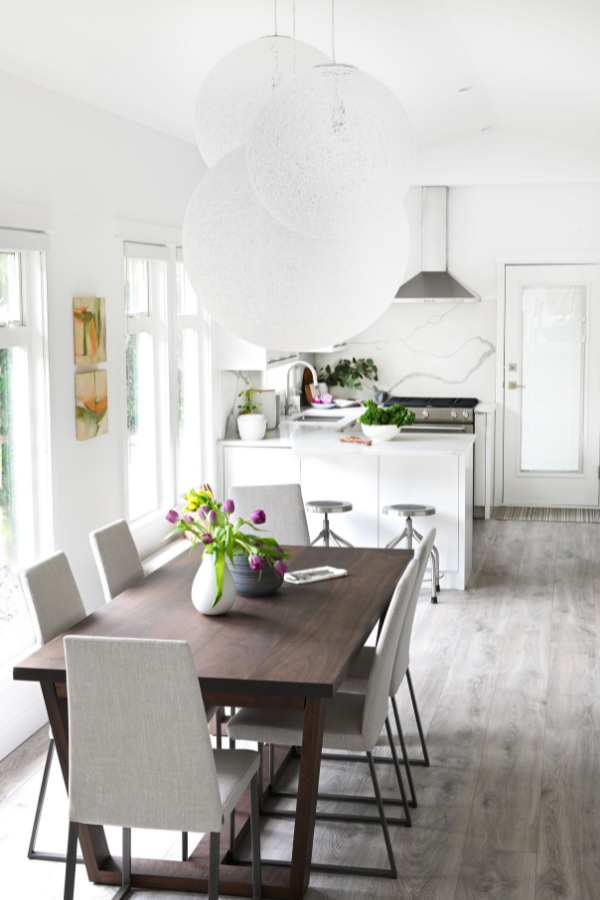
Would you have guessed this is laminate flooring? It sure is. It looks great and is destined to last. From the Lynn Valley Project.
Tip: Opt for Sunbrella, Crypton, and other treated fabrics
Remember when I said snack time on the sofa doesn’t need to be a nail-biting experience? Treated “performance” fabrics, like Sunbrella and Crypton, are the reason why. These fabrics’ fibres are treated with a coating to repel dirt and keep liquids from penetrating. Sunbrella fabrics, for example, can be cleaned simply with a diluted bleach solution. That’s it.
It is true that these fabrics should still be treated immediately, but the success rate of stain removal is much higher, making it ideal for the little ones… and for the Pinot you uncork during your next book club.
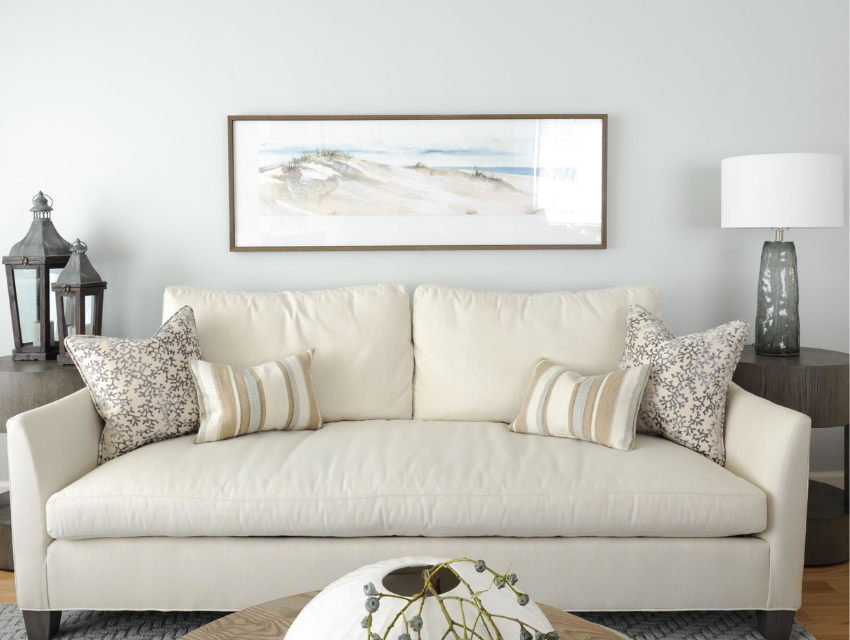
We custom-ordered this sofa in Sunbrella fabric for the Kitsilano Urban Cottage’s family of four. It looks vulnerable in cream but is designed to repel anything the kids can dish out.
Part 2. Keeping Your Home Blissfully Organized
Tip: Storage is key
The best tip I can give you for a child-friendly home that stays blissfully organized and can be ready to entertain at a moment’s notice is to have storage. Storage can apply to built-in cabinets and drawers, baskets and bins, or even a designated place to stash things in a hurry when a friend stops by.
Better yet, get the whole family involved in your organization system. Help your kids learn to clean up after themselves, know where to put things away, and get them accustomed to reading labels. Yes, they may groan, but their help will keep you sane, and on a deeper level, may help them feel a sense of responsibility, community, and belonging.
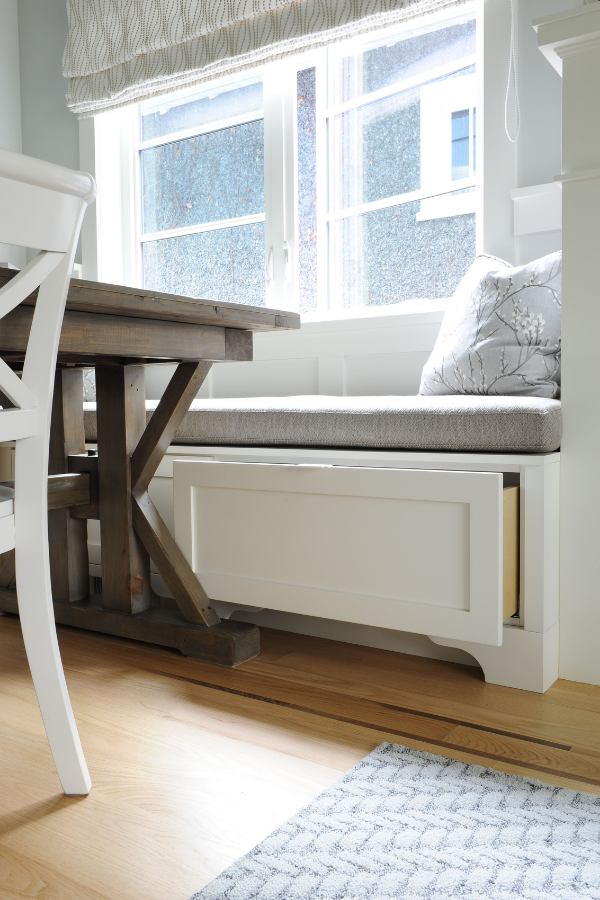
This built-in bench seating around the Kitsilano Urban Cottage’s breakfast table has drawers to maximise storage in this smaller home.
Tip: Purge early and often
Believe it or not, I have been in homes where the kids are well into their teens and there is still a miniature plastic kitchen and a bucket of playdough stored in the family room! These things have a way of becoming invisible to us over time.
My advice: purge early and often. When your kids no longer play with certain toys, clear them out! Sell them, pass them on, or donate them to a good cause. I have kept a few key toys for my possible future grandchildren, but let’s face it, in 20-30 years’ time there will be new and more exciting toys that your grandchildren will want.
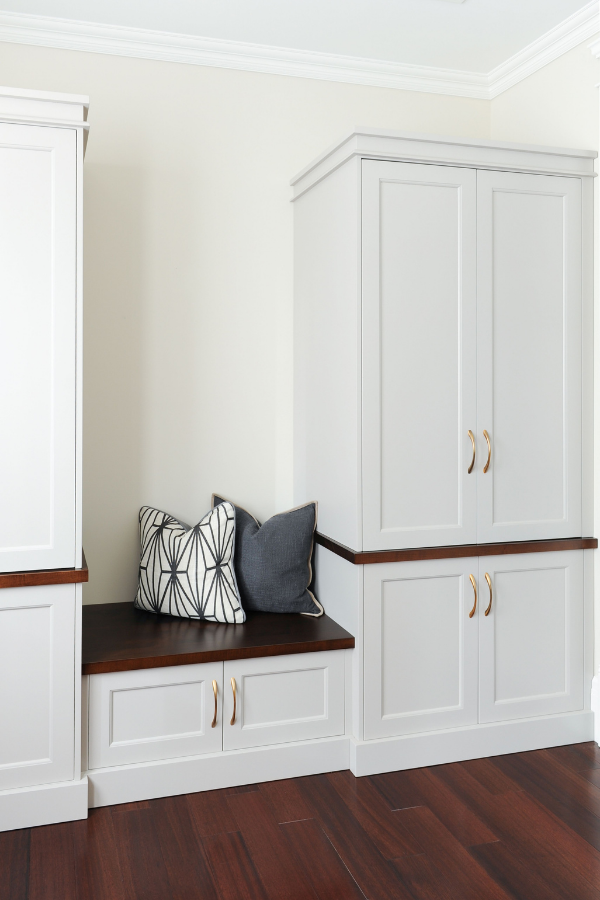
We added ample storage in this West Side Family Home. With kids at home, even this much extra space can fill up fast!
Part 3. Keeping Kids Safe at Home
Tip: Keep spaces open for child-friendly play
Empty floor space is a must for kids and pets. It gives them room to play, roam, and run around. I’m not suggesting that you have minimal furniture, but there are some ways to avoid overcrowding your space. For instance, choose a lightweight coffee table that can be easily moved aside, or add built-ins to the room providing a place to stash everyday items.
Tip: Avoid common household hazards
Dangling electrical cords, old area rugs with curled corners (tripping hazard), cords on window treatments, as well as things that tip over easily — these are all common and easily avoidable hazards. Instead, choose heavy lamps that can be safely plugged in behind the furniture, ensure that free-standing pieces have a solid, wide base, and opt for cordless window treatments where possible.
You may also want to affix taller items — like dressers, bookcases and armoires — to the wall, rather than leaving them freestanding. Every year, children are seriously injured or killed by climbing up furniture that falls on top of them. If you didn’t think that your furniture choices could impact your children’s safety, think again.
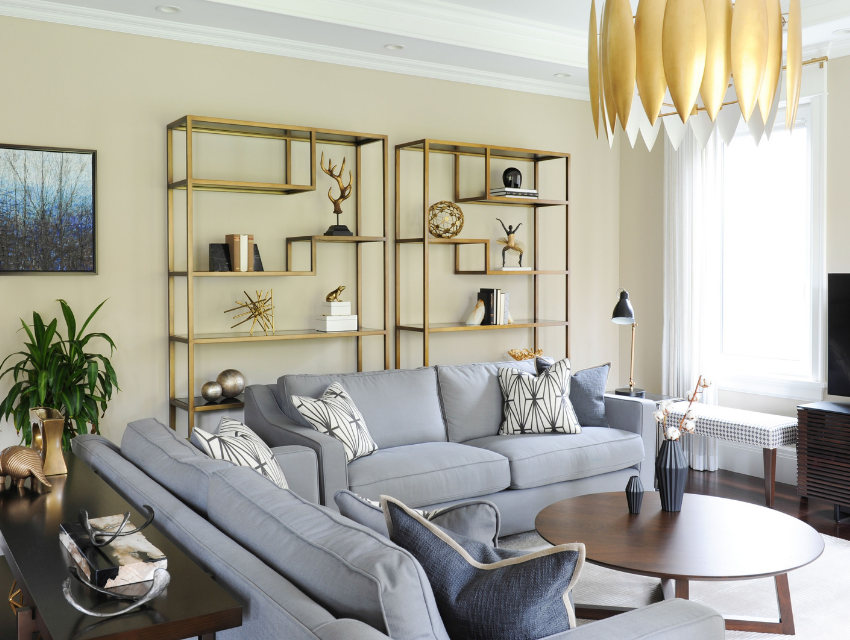
Stylish freestanding shelving is weighted and carefully wedged behind the sofa for safety in this family friendly home.
Tip: Keep exercise equipment safe
Now that more of us are working out at home, we must keep gym equipment secure and safe for our kids. This usually means making them inaccessible to curious fingers!
Kids are notorious for getting into things they shouldn’t, so going the extra mile in the interest of safety is worth the effort. You could store heavy weights in a locked cabinet (and hide the key). For machines like treadmills or your Peloton, you should turn off the machine, remove the key and store it out of reach.
That’s it — 8 practical tips that check all the boxes for a beautiful, child-friendly home with the everyday luxuries you deserve. Have questions? Need help designing your own family home? I’d love to help.
We’re just a quick call or email away…
See you soon,
Lori


